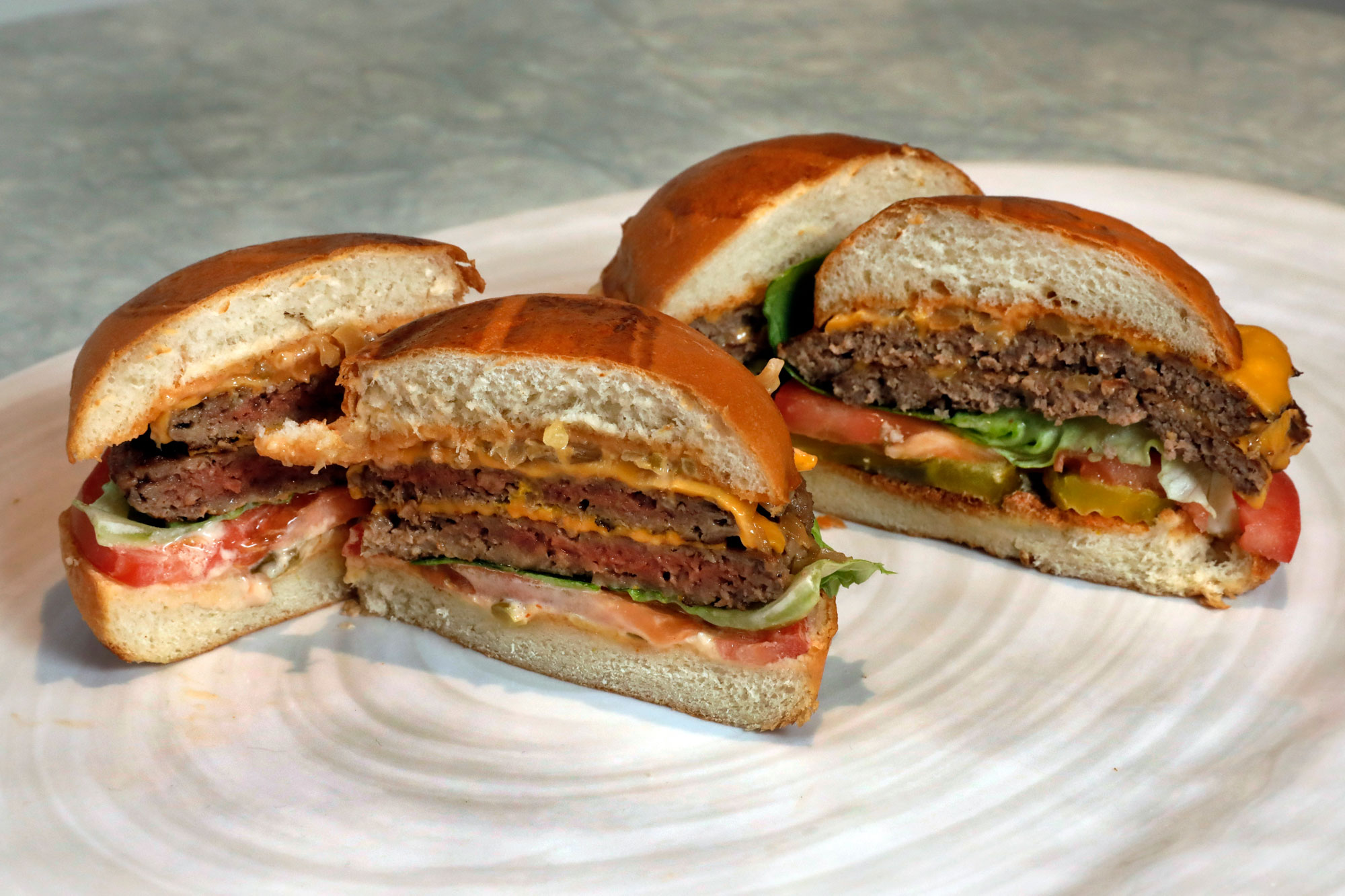The Impossible Burger is coming to a shop (and a Burger King) near you

US regulators have approved a key ingredient in Impossible Foods’ plant-based burger patties, clearing the way for them to go on sale directly to consumers.
The news: The US Food and Drug Administration has ruled that soy leghemoglobin, a protein-based color additive used to make the Impossible Burger “bleed” like real meat, is safe, Reuters reports. Impossible Foods has said its burger will go on sale in “select retail stores” in September.
The magic ingredient: Soy leghemoglobin, also called “heme,” is found in the root nodules of plants and closely resembles hemoglobin, an iron-containing protein found in red blood cells. Impossible Foods uses genetic engineering to scale up the volumes of heme for production.
I’m hungry, can I get one? Extra good news, burger fans. If you live in the US, you’ll be able to buy an Impossible Whopper from any of Burger King’s 7,200 outlets a week from today. The fast food chain (following in the footsteps of rival White Castle) carried out a trial run in St. Louis earlier this year. Visit to those branches rose by more than 18%, TechCrunch reports. No wonder the chain is keen to roll it out nationwide.
Why is the burger in restaurants but not stores? It's down to the way food is regulated in the US. The FDA regulates all foods and food ingredients, but it doesn't have any jurisdiction over restaurants, cafeterias or food trucks, which are regulated by state and local governments.
Read next: The race to make a lab-grown steak
This story first appeared in our daily newsletter The Download. Sign up here to get your dose of the latest must-read news from the world of emerging tech.
Deep Dive
Biotechnology and health
How scientists traced a mysterious covid case back to six toilets
When wastewater surveillance turns into a hunt for a single infected individual, the ethics get tricky.
An AI-driven “factory of drugs” claims to have hit a big milestone
Insilico is part of a wave of companies betting on AI as the "next amazing revolution" in biology
The quest to legitimize longevity medicine
Longevity clinics offer a mix of services that largely cater to the wealthy. Now there’s a push to establish their work as a credible medical field.
There is a new most expensive drug in the world. Price tag: $4.25 million
But will the latest gene therapy suffer the curse of the costliest drug?
Stay connected
Get the latest updates from
MIT Technology Review
Discover special offers, top stories, upcoming events, and more.